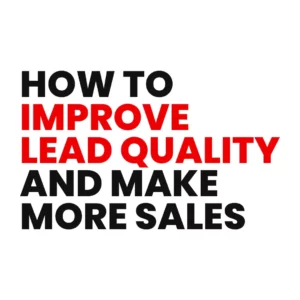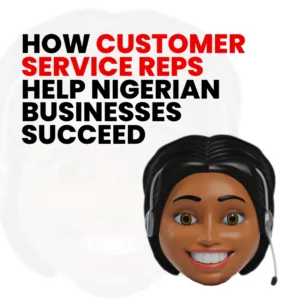Big businesses can get things done faster because they have a pool of the best talents and organization checks and balances to rule over them. If you are looking to build a successful small business, there are some basic things you need to put in place. Here are 8 things every small business owner in Nigeria needs to do to succeed.
Read more: How much does it cost to buy a domain name in Nigeria?
What is a small business?
The explanation of ‘small business’ depends on three factors;
- Location
- Industry
- Staff size
What qualifies as a small business in the USA is probably a big business to people living in Nigeria.
Also, a small business in the oil and gas industry is probably one netting One Hundred Million Naira in annual revenue (₦100,000,000) while a small business in the cosmetics industry is one netting less than Five Million Naira (₦5,000,000) in annual revenue.
In terms of staff size, this also differs by location, according to Wikipedia, a small business in the US has up to 250 employees while small businesses in Australia have 15.
These countries above are developed, hence, a business operated by one person in Nigeria could be classified as a small business.
Who Is a Small Business Owner?
A small business owner operates a small-scale enterprise targeting an audience in the immediate locality.
Naturally, there are far more small business owners in Nigeria than large enterprises.
This is because starting a small business can be as simple as having a skill that benefits a specific target audience.
For instance, a barbing salon renting out spaces to barbers.
It is rare for people to commute over a mile radius from their home to get their hair done.
Therefore, the barbing salon owner targets men within less than a mile radius.
Also, small business owners tend to have roots in the location where they establish their businesses.
For instance, a restaurant business inherited from parents.
This kind of business is important to the immediate community.
Therefore, provided it keeps solving sustenance problems for the family, it is passed from generation to generation.
It is rare for such businesses to expand beyond the community.
What Are the Differences Between a Small Business and a Big Business?
Differences between small businesses and big businesses can be attributed to 3 factors namely;
- Organization
- Finances
- Target Market
Here’s a table showing how small and big businesses differ based on these factors.
| Small Business | Big Business | |
|---|---|---|
| Organization | Small businesses are easier to manage as decisions are made by one person or a small group of people. | Big businesses have a clear hierarchy. Therefore, decisions are slow since a lot of people have to sign off on major changes. |
| Finances | Small businesses are self-funded, hence, capital or investments are from the pocket of the owners. | Big businesses generate capital by taking out loans from banks or selling stocks to the public. |
| Target Market | Small businesses are usually localized and niche. The market and sell to a specific audience within a local area. | Big businesses are global and diverse. Since their mission is to earn as much as possible for their investors, they look to expand quickly and branch into different industries to achieve profitability. |
What Are the 8 Things Small Business Owners in Nigeria Need to Do to Succeed?
To be successful in business today, small business owners need to have organizational skills needed to manage people, processes and finances.
Running a business is difficult, things won’t work out all the time.
Here are 8 things small business owners in Nigeria need to do to succeed
Have Smart Business Goals
“A goal without a plan is a wish”
Smart goals are Specific, Measurable, Achievable, Realistic and Time-bound.
When you set out to build a small business, you need to have a mental view of where you want your business to be in 5 – 10 years, this is your vision.
Then you can work on breaking down your vision into yearly goals.
Yearly breaks down to quarterly and quarterly become monthly goals.
You can now break down your monthly goals into to-do lists.
These goals need to be backed up by metrics (numbers) known as key performance indices (KPIs).
Hitting your KPI targets month by month infer you are on your way to hitting your yearly targets and by extension your vision.
Numbers make your goals measurable while time frame gives your goals end dates.
A smart goal is;
I want to generate ₦5,000,000 by the end of this month from an ad budget of ₦1,000,000
Not;
I want to increase my revenue
Or
I want to generate ₦5,000,000 by the end of this month from an ad budget of ₦10,000 (Who are you kidding?)
Understand How to Hire and Retain the Best Talents
To build a profitable and lasting business, you need the best hands.
Most small business owners think small, so they hire the cheapest professional they can recruit for the role.
You get what you pay for.
The best person for the job does not come cheap.
The incompetence of your cheap labour will cost you in the long term.
The truth is you know you would let these incompetent recruits go when you expand, right?
Why not spare yourself the trouble and start with the best man for the job.
With the emergence of remote jobs and the gig economy, there are positions you don’t need your employee to come physically to the office.
Make it easy for people to work with you, understand what you need from them and be sure to validate their ability to perform these duties.
If you can’t verify their experience, work with a human resource firm to help you get the best candidates for the job.
In addition to money, salary or other remunerations, how people feel about your business is key in them staying with you.
Given a choice, most people won’t stay in a place where they are not valued.
Nobody will continue with a job where they are unhappy if they had a choice.
Make your business environment conducive for your employees, and show them you care about their growth, not only the value they bring to the company.
Treat them well and they will stay.
Be current on changes in your industry
Always be aware of all external trends and market conditions that may impact your business.
Then, be prepared to respond quickly and change plans to identify and manage potential issues.
Here are some things you should keep in mind;
- Interest rates and exchange rates: This can affect the general trading environment and is not just a direct cost issue.
For example, interest rates can affect a particular industry at different times than others, and exchange rates can affect the ease and profitability of business with other countries. - What are your competitors’ strengths and weaknesses?
- New technologies and innovations: These transform the market and increase or decrease the demand for existing products or services.
All companies experience a general change in the sales environment at some point.
These changes can affect the economy, including recessions and recessions.
Alternatively, it may only affect a particular industry or sector.
To avoid potential cash flow issues, pay attention to possible changes and adjust forecasts and plans to make up for them.
Execute Result-driven Marketing
Result-driven marketing is marketing with smart goals in mind.
You need to decide on profitable results before you spend money on promotions.
This means that the most important metric in your marketing is the return on investment (ROI).
ROI is a KPI dictated by the profit you made from the advert spend.
Also, result-oriented marketing forces you to plug your leaks into other business departments.
For instance, you can’t avoid running ads overnight and you know people will send you messages when you’re closed.
The need to covert people who send messages when you are closed may push you to hire a virtual assistant who responds to messages when you are closed e.g. an employee living in another time zone.
The only thing that matters in result-oriented marketing is profit.
If it is green, then it is good marketing.
Secure Business Data
To build a lasting business, you need to improve gradually by learning from mistakes.
Mistakes are recorded in the data as well as the solutions for the mistakes.
Keeping proper data helps you know your stand and every instance like where you are financial.
Most small business owners work with their employees to keep physical data in sales books and other data entry books.
In addition, to live data assets, you should work with your employees to secure your business data on cloud services like Google Drive.
They can build out sheets for marketing assets, customer management, finances etc.
When you need to make decisions, you can go back to your secured data to guide you.
Study the competition
By competition, I mean global brands in your industry who are where your business should be in decades if you do things the right way.
This kind of competitor usually has the answers since they employ the best talents to find them.
When starting, you need to move fast.
To cover more ground, you should not start from ground zero.
This is where your global competitors come in.
Need to know what people like to see on social media, look at their posts.
Need to know the ad creatives (designs, videos, copy, etc.) to use, study their ads.
In addition to global brands, you need to look at trends your local competitors follow.
This makes sure your brand does not look strikingly odd to your local audience.
Also, local competitors help you set competitive prices on your products, so they don’t capture your customers simply by lowering their prices.
While global competitors help you look big and credible, local competitors help you look relatable.
To make your brand stand out, you need to know who you are up against and how their offers differ from yours.
Get customer feedback
The surest way to keep growing is by keeping your customers happy.
Happy customers do two things;
- Return to purchase more
- Refer your business to others
There is no better promotion than word-of-mouth; it cost nothing.
Customer referrals do not affect your marketing or sales budget at all.
Past customers tell people about your product and convince them to buy from you.
How do you get customers to advocate for you? Especially when they have better things to do with their time.
Simple, treat them right!
How do you know your customers feel you are treating them right?
Ask them, ask your customers for feedback.
Get answers to questions like;
- What do customers think about your product?
- What can you do better?
- What issues do they face trying to buy from you?
- Do they like your customer service representative?
- Is your product worth the price?’
- Would customers be open to reviewing you on review sites like Google my Business?
Some of the responses you get from these kinds of questions help you plug holes in your business which in turn helps you sell more.
Organize the business for everyone
Imagine you hired someone to manage your social media platforms.
Your new social media manager will need access to your social media platforms.
If you need to call your previous social media manager for usernames and passwords, then your business is not well organized.
From marketing to finances, you need to know where everything is and who is in charge of what.
Platforms like Google Drive help you organize your files for free.
You can create a Gmail address for your business and give folder access to specific roles in your organization.
You can manage your password with a tool like LastPass or create and regularly update a document containing company login details.
Most software platforms you will use for your business allow you to add several users and give them various access levels.
For instance, Facebook Business Suite allows you to add Facebook users to manage business assets like Ad accounts, Facebook pages, Instagram accounts etc.
Grant your employees access to only assets they need to work efficiently.
This way, you know who to speak to when there is an issue with any business asset.
Make organization a part of your business, work only with people who understand the tools you organize your business with.
Conclusion
A successful business is made up of several pieces that work together.
People come and go, therefore, it is important for small business owners need to protect the soul of their company and keep things running.
This article highlighted 8 things every small business owner in Nigeria needs to do to build a business that thrives.
You need to create smart business goals, understand how to make plans and hire the best talents and keep them for a long time.
Ensure you are up-to-date on your industry, do this by following key figures in your industry or subscribing to newsletters that deliver credible industry news.
Small business owners need to run result-driven marketing and have KPIs with metrics they wish to achieve before embarking on promotional campaigns.
Learn from mistakes by keeping and updating your business data and studying your competitors in order to get ahead on trends and do better than them.
Customers get you paid, put them first and ensure they are happy with your business by getting regular feedback from them.
Create an environment for your employees and partners to thrive by keeping things organized.


